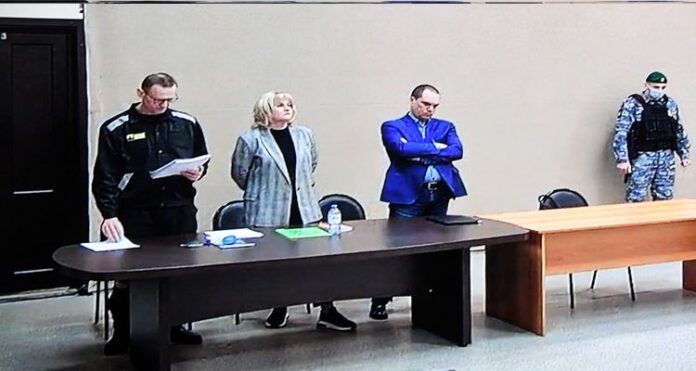| Translate This News In |
|---|
On Tuesday, a Russian court determined jailed Kremlin critic Alexei Navalny guilty of large-scale fraud, likely extending the time President Vladimir Putin’s most prominent critic spends in prison by years. Navalny is already serving a two-and-a-half-year sentence in a prison camp east of Moscow for parole violations related to charges he claims were made up to stymie his political ambitions. In the most recent court case against him, which he has also dismissed as politically motivated, he could face an additional 13 years in prison. In a room full of prison security officers, a gaunt Navalny stood beside his lawyers as the judge read out the charges against him. Looking down as he flipped through court documents, the 45-year-old appeared unfazed. Prosecutors had asked the court to sentence him to 13 years in a maximum-security penal colony for fraud and contempt of court. A decision is expected later today.
Navalny was imprisoned last year after returning to Russia after receiving medical treatment in Germany for poisoning with a Soviet-era nerve agent during a visit to Siberia in 2020. Putin, according to Navalny, was responsible for the attack.
The Kremlin said it had seen no proof that Navalny had been poisoned and denied any Russian involvement if he had been.
On March 15, after the final court hearing in his case, Navalny struck a typically defiant tone, writing on Instagram: “If the prison term is the price of my human right to say things that need to be said… then they can ask for 113 years.” I will not retract my words or actions.”
Russian authorities have portrayed Navalny and his supporters as subversives determined to destabilize Russia with Western support. Many of Navalny’s supporters have fled Russia rather than face repression or imprisonment at home.
Navalny’s opposition movement has been labelled “extremist” and closed down, but his supporters continue to express their political views on social media, including their opposition to Moscow’s military intervention in Ukraine.


















